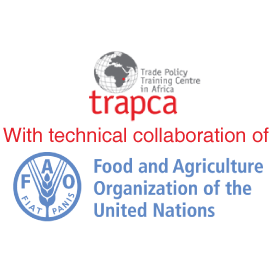Agriculture in International Trade Agreements
Global and regional agreements set out the rules for countries trade policies .and define the policy space available within agriculture for reaching food security objectives. Therefore, balancing the achievement of national policy objectives with the obligations under trade agreements is critical. This course informs the treatment of agriculture in several World Trade Organization (WTO) agreements and regional trade agreements (RTAs) and aims to support policy makers to develop and implement appropriate agricultural development and food security strategies.
By the end of the course, participants will be better able to:
- understand and identify the main provisions of the WTO Agreement on Agriculture (AoA);
- understand and identify the main provisions of the WTO Agreement on the Application of Sanitary and Phytosanitary Measures (SPS), and of other WTO agreements that concern trade-related constraints and procedures;
- describe the treatment of agriculture in the Regional Trade Agreements.
A downloadable package of this course is also available in Russian.
Duration: 7 hours Publication Date: September 2018
System Requirements
The online version of this course runs on the main web browsers. Preferably you should use Internet Explorer, Safari, Chrome and Firefox.
The downloadable version only runs on Windows PC’s and no additional software is needed.
Audience
This course is designed primarily for representatives from governments, for example Ministries of Agriculture, Trade, Economy and other entities directly involved in trade negotiations and in the formulation and implementation of agricultural policies and programmes. Private sector participants such as representatives of producer organizations or agro-industry as well as researchers interested in agricultural policy and trade analysis will also benefit from the course.
You will learn about
- Main provisions of the WTO AoA on market access, domestic support and export competition
- Key concerns in the agriculture negotiations of the Doha Round, focusing on the outcomes from previous WTO Ministerial Conferences
- Significance of non-tariff measures (NTMs) for international trade and the WTO agreements that deal with such measures, particularly Sanitary and Phytosanitary (SPS) measures and Technical Barriers to Trade (TBT)
- Trends in RTAs and their provisions on policy areas relevant to agricultural trade, compared to those of multi-lateral trade agreements
Trade, Food Security and Nutrition
The relationship between trade and food security is attracting increased attention on both the trade and development agendas, with trade recognized as one of the means for achieving the Sustainable Development Goals (SDGs). This course addresses the linkages between trade and food security, which are highly complex and have been subject to intense debates at the national and global levels. The challenge is how to ensure that the expansion of agricultural trade works for and not against, the eradication of hunger, food insecurity and malnutrition.
A downloadable package of this course is also available in Russian.
Duration: 7 hours Publication Date: October 2017
System Requirements
The online version of this course runs on the main web browsers. Preferably you should use Internet Explorer, Safari, Chrome and Firefox.
The downloadable version only runs on Windows PC’s and no additional software is needed.
Audience
This course is designed primarily for representatives from governments, for example Ministries of Agriculture,Ministries of Trade and Commerce, Ministries of Economy and other entities responsible for the formulation and implementation of agricultural and trade policies and programmes. Private sector participants such as representatives of producer organizations or agro-industry as well as researchers interested in agricultural policy and trade analysis will also benefit from the course.
You will learn about
- The challenges and opportunities posed by greater openness to trade for food security and nutrition
- The different types of trade policy measures, their role in promoting food security and nutrition, and considerations for trade policy design and implementation
- The key global policy and regulatory frameworks governing trade, food security and nutrition, including the WTO Agreement on Agriculture and the 2030 Agenda for Sustainable Development
- The challenges and opportunities for improving policy coherence between trade and agriculture at the national, regional and global levels


